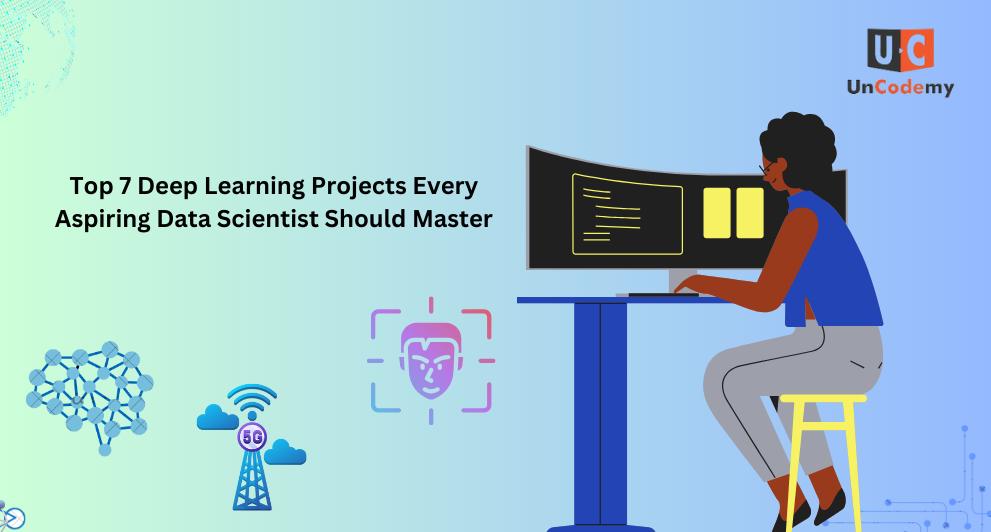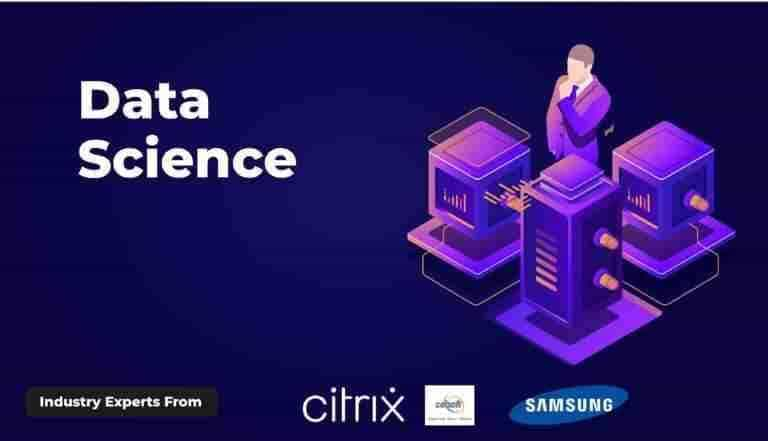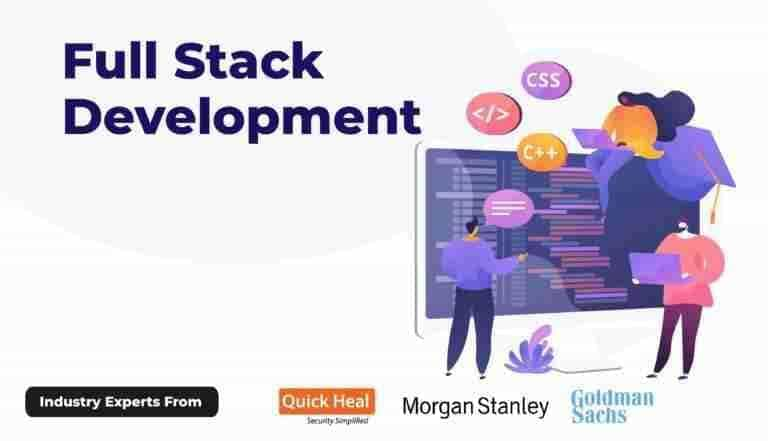Top 7 Deep Learning Projects Every Aspiring Data Scientist Should Master



Deep learning has revolutionized the world of data science by enabling machines to perform tasks that were once thought to be the sole domain of humans. From image recognition to natural language processing, deep learning models have been applied across industries in ways that are transforming how we live, work, and interact with technology. If you’re a budding data scientist or machine learning enthusiast, diving into deep learning projects is one of the best ways to hone your skills and gain practical experience.
In this blog post, we will explore seven captivating deep learning projects that every data science enthusiast should absolutely learn about. These projects are not only fun but also provide excellent opportunities for learning and applying advanced concepts in neural networks, computer vision, natural language processing (NLP), and more.
Convolutional Neural Networks (CNNs) are the foundation of computer vision. A classic starter project is to classify images (e.g., cats vs. dogs).
Key Concepts Learned:
Tools & Libraries:
Recommended Datasets:
Sentiment analysis uses RNNs/LSTMs to classify text data like reviews or tweets.
Key Concepts Learned:
Tools & Libraries:
Recommended Datasets:
Build a system to recognize and verify faces using CNNs or pre-trained models.
Key Concepts Learned:
Tools & Libraries:
Recommended Datasets:
Train GANs to generate realistic images like human faces or landscapes.
Key Concepts Learned:
Tools & Libraries:
Recommended Datasets:
Combine the content of one image with the artistic style of another.
Key Concepts Learned:
Tools & Libraries:
Recommended Datasets:
Predict future values in time-based data using LSTM or GRU networks.
Key Concepts Learned:
Tools & Libraries:
Recommended Datasets:
Build a system to recognize road elements, plan paths, and control a vehicle.
Key Concepts Learned:
Tools & Libraries:
Recommended Datasets:
By working through these seven deep learning projects, you’ll not only improve your skills in neural networks and deep learning algorithms, but you’ll also gain the hands-on experience necessary to tackle real-world problems. Whether you’re building an image classifier, creating a sentiment analysis model, or developing an autonomous driving system, these projects will help you understand the vast potential of deep learning in the field of data science.
Deep learning is an exciting and fast-evolving field. These projects serve as stepping stones, and once you’ve mastered them, you’ll be well on your way to tackling even more complex and impactful challenges. So, pick a project, get started, and take your data science skills to the next level!
Deep learning is a subset of machine learning that involves neural networks with many layers (hence “deep”). It is highly effective for tasks like image recognition, natural language processing, and speech recognition. As a data scientist, mastering deep learning will help you tackle complex problems and stay relevant in the rapidly evolving field of AI.
The most popular deep learning frameworks are TensorFlow (with Keras), PyTorch, and MXNet. TensorFlow is widely used in industry, while PyTorch is favored in academia for research purposes. Both are powerful tools for building deep learning models, with TensorFlow offering high scalability and PyTorch being more intuitive for experimentation.
While it’s helpful to have a basic understanding of machine learning concepts (like supervised vs. unsupervised learning, training vs. testing, etc.), many deep learning projects are beginner-friendly. A solid foundation in programming (especially Python) and linear algebra will help you dive into deep learning more effectively.
It is possible to work on deep learning projects without a GPU, but it will be slower, especially for larger datasets or complex models. You can start with smaller datasets or use cloud services like Google Colab or AWS that provide free or affordable GPU access for training deep learning models.
For image classification projects, datasets like CIFAR-10, MNIST, or ImageNet are great starting points. For sentiment analysis, datasets like IMDb Reviews or Sentiment140 are commonly used. Always ensure the dataset you choose aligns with the specific problem you’re solving and is large enough to provide meaningful results.
The duration of each project depends on several factors, including the complexity of the model, dataset size, and your prior knowledge. For a beginner, a simple image classification project might take a few days to a week, while more advanced projects, such as GANs or autonomous driving, could take several weeks to a few months to complete.
Deep learning projects come with several challenges, such as overfitting, model convergence, and data preprocessing. Additionally, training deep models can be computationally expensive and time-consuming. However, these challenges also provide excellent opportunities to improve your problem-solving and model-tuning skills.
To evaluate your model’s performance, you can use metrics like accuracy, precision, recall, F1-score, and confusion matrices for classification tasks. For regression tasks, metrics like mean squared error (MSE) or mean absolute error (MAE) are often used. For GANs and generative models, evaluating the realism of generated samples can be more subjective but is crucial for project success.
Yes! There are plenty of resources available, including:
- Online courses like Andrew Ng’s Deep Learning Specialization on Coursera.
- Tutorials and blog posts from sites like Towards Data Science and Kaggle.
- Books like Deep Learning with Python by François Chollet.
- Communities such as Stack Overflow, Reddit, and GitHub can offer support when you’re stuck on a project.
By completing these deep learning projects, you’ll gain expertise in:
- Building and tuning neural networks using advanced architectures.
- Image and text processing through techniques like convolutional and recurrent neural networks.
- Data preprocessing and feature extraction for deep learning tasks.
- Model evaluation and deployment, which are essential for real-world applications.
Additionally, you’ll improve your coding, problem-solving, and analytical skills, all of which are highly valuable in a data science career.
Personalized learning paths with interactive materials and progress tracking for optimal learning experience.
Explore LMSCreate professional, ATS-optimized resumes tailored for tech roles with intelligent suggestions.
Build ResumeDetailed analysis of how your resume performs in Applicant Tracking Systems with actionable insights.
Check ResumeAI analyzes your code for efficiency, best practices, and bugs with instant feedback.
Try Code ReviewPractice coding in 20+ languages with our cloud-based compiler that works on any device.
Start Coding TRENDING
TRENDING BESTSELLER
BESTSELLER BESTSELLER
BESTSELLER TRENDING
TRENDING HOT
HOT BESTSELLER
BESTSELLER HOT
HOT BESTSELLER
BESTSELLER BESTSELLER
BESTSELLER HOT
HOT POPULAR
POPULAR